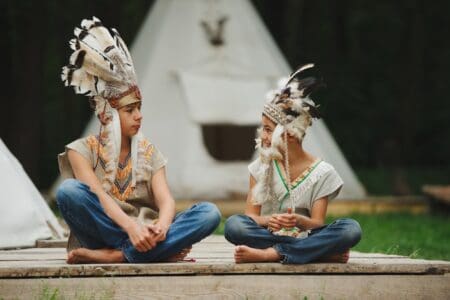It’s easy to get lost when looking at last names that start with K. Many cultures worldwide commonly use surnames starting with K, from Turkish and Japanese to English and Dutch. How can you best get a clear look at these names without missing others you weren’t aware of?
Our list of 252 last names, starting with K, can help you comprehend the basics of these particular surnames. From meanings to origin, you’ll better understand what they’re about and be a K surname expert in no time!
80 Popular Last Names That Start With K
The most well-known last names, starting with K, are here for us to learn about and appreciate.
- Kaiser – derives from the German “keiser,” meaning “emperor” as a variation of the ancient Roman Caesar.
- Kalani – a Hawaiian surname beginning with K composed of “ka,” meaning “the” and “lani,” meaning “heavens.”
- Kalua – one of multiple Hawaiian last names that start with K, which means “the second child.”
- Kamada – means “rice field” and “rice paddy” in Japanese, as well as “kettle pot.”
- Kamaka – also a boy’s name in Hawaiian meaning “rock” and “beloved child”; means “rock” in Māori.
- Kandiah – a Tamil-Indian surname and male name with an unknown meaning.
- Kane – an Anglo form of the Gaelic Ó’Catháin, meaning “descendant of Cathán,” meaning “warrior.”
- Kaneko – means “golden (or metal) child” in Japanese and is also the name of several places in Japan.
- Kang – a Chinese-Mandarin surname meaning “healthy,” inspired by Kang Shu, an ancient king’s title.
- Kanye – means “next in line” in Nigerian Yoruba and “let’s give” in Nigerian Igbo.
- Kaplan – a Germanic and Slavic name for a “chaplain,” means “tiger” in Turkish.
- Kapoor – based on an Indian-Punjab given name meaning “camphor” from the Sanskrit “karpūra.”
- Karen – derives from the Germanic given name Karel, meaning “ray of sunlight” in Hebrew.
- Karim – means “dignified” in Arabic from “karama,” one of the names of God in Islam.
- Karlsson – a Scandinavian surname meaning “son of Karl,” one of the most popular surnames in Sweden.
- Karr – means “swamp” and “from the marsh” in Gaelic, based on the Old Norse Kjarr.
- Karsten – among 7-letter Germanic last names starting with K as a form of Christian, meaning “anointed.”
- Kato – means “add/increase” and “wisteria,” the 10th most popular Japanese surname.
- Kaufman – originally the German Kaufmann and a Jewish occupational surname meaning “merchant.”
- Kaur – a Punjabi-Indian surname from the Sanskrit “kumārī,” meaning “girl” and “daughter.”
- Kazem – an Arabic-Persian surname and male name meaning “tolerant,” “forgiving,” and “having patience.”
- Keating – from the Old English Cȳting, meaning “kite” and a form of the Gaelic Céitinn.
- Keefer – is associated with “pine trees” in German and is an occupational name equivalent to Cooper.
- Keener – a variation of the German Kuehner associated with the Old English “cȳna,” meaning “cow slope.”
- Keita – a name from the West African Keita clan; derived from “keetaa,” meaning “to inherit.”
- Keith – also a Celtic male name meaning “forest”; a German nickname meaning “sprout” and “offspring.”
- Keller – for someone “in charge of a cellar,” so its meaning in German is “cellar master.”
- Kelly – included in popular 5-letter surnames starting with K, from the Gaelic “ceallach,” meaning “bright-headed.”
- Kelsey – a place name located in Lincolnshire, England, that means “Ceol’s island.”
- Kemp – based on the Old English “cempa” and Old Norse “kempa,” meaning “warrior.”
- Kemper – given to a German “peasant farmer” and related to the German Kamp.
- Kennedy – an Anglo variant of the Gaelic Ó’Ceannéidigh’, meaning “descendant of Ceannéidigh.”
- Kenney – an Irish variation of Kenny, meaning “descendant of Coinneach” in Gaelic.
- Kent – comes from the Celtic “cant,” meaning “bordering of a circle”; also means “edge.”
- Kenyatta – an East African surname inspired by the beaded belt worn by the Maasai; means “jewel.”
- Keough – an Anglo form of the Gaelic MacEochaidh, meaning “son of Eochaidh.”
- Kerns – taken from the Gaelic Ó’Céirín, meaning “descendant of Céirín,” meaning “dark one.”
- Kerr – given to someone “living near a marsh or swampy woodland,” also the Old Norse Kjarr.
- Kerrigan – originally appearing as the Gaelic Ó’Ciaragán, from “ciar,” meaning “dark-complexioned.”
- Key – from the Old English “coeg,” meaning “key”; used for a “key-holder” or “maker of keys.”
- Khalid – means “immortal” and “everlasting” in Arabic; inspired by the 7th-century commander Khalid ibn al-Walid.
- Khan – from the Mongolian “khaan” as a title for a “military chief” or “royalty.”
- Kidd – means “kid” and “young goat” in Scottish and is also a nickname for Christopher.
- Kiernan – means “son of a lord” from the Gaelic MacKiernan, meaning “Kiernan’s son.”
- Killian – based on the Celtic “ceallach,” meaning “bright-headed” and “little warrior.”
- Kilpatrick – from the Gaelic Mac Giolla Phádraig, meaning “son of the servant of (Saint) Patrick.”
- Kim – means “gold” in Chinese and is used by 20% of Koreans.
- Kimmel – from the Middle German “kumin,” meaning “caraway,” as an occupational name for a “spicer.”
- Kinder – based on the German “kind,” meaning “child,” given to someone with many children.
- King – from the Old English “cyning,” meaning “tribal leader,” a nickname for someone “king-like.”
- Kingsley – appears in Old English as Cyningesleah, meaning “from the king’s wood, glade or meadow.”
- Kingston – like other K last names with the root “king,” Kingston means “the king’s estate.”
- Kipp – from the Middle German “kip,” meaning “bundle”; an occupational name for a fur trader.
- Kirby – an Anglo form of the Gaelic Ó’Ciarmhaic, meaning “church settlement.”
- Kirk – means “church” in Danish from the Old Norse “kirkja,” for someone living near a church.
- Kirkwood – means “the wood near the church” in Scottish based on place names.
- Kishi – means “beach” or “seashore” in Japanese and is also a girl’s name in Japan.
- Klement – comes from the Latin “clement,” meaning both “merciful” and “mild.”
- Kline – is another spelling of Klein, meaning “wedge” for someone living near wedge-shaped land.
- Knapp – a German occupational surname from Knabe, meaning “young unmarried man.”
- Knight – among royal last names that start with K from the Old English “criht,” meaning “servant.”
- Knox – from the Scottish-Gaelic “cnoc” and Old English “cnocc,” meaning a “round-topped hill.”
- Ko – a variant of the Mandarin “Gao,” meaning “high;” also means “stone” in Hungarian.
- Kobayashi – means “small forest” in Japanese and is ranked among the top 10 Japanese surnames.
- Koch – a German-Jewish occupational name given to a “cook” or “chef.”
- Kong – means “hole” in Chinese-Mandarin, which is part of the given name Kong Fu.
- Konstantinov – a Slavic surname meaning “son of Konstantin” or “belonging to Konstantin.”
- Kopp – means “head” in Middle German for “someone living on a hill.”
- Kostic – a Serbian patronymic surname based on Kostadin, the Slavic form of Constantine.
- Kovacs – a Hungarian form of the Slavic Kovač, meaning “blacksmith” or “smith.”
- Kramer – a Dutch and German last name used to denote a “traveling merchant.”
- Krause – from the German “krūse,” meaning “pitcher”; an occupational name for a seller of jugs.
- Krieger – a Germanic occupational surname given to a “mercenary soldier.”
- Kristiansen – a Danish and Norwegian surname meaning “son of Christian”; also appears as Christiansen.
- Krueger – from the German Krug, meaning “pitcher”; given to someone who makes or sells jugs.
- Kuhn – from the German first name Kuno based on Konrad, meaning “bold.”
- Kumar – from the Sanskrit “kumāra,” meaning “prince”; also a title for the Hindu god Kārtikeya.
- Kuo – means “vast” in Chinese and is part of several Chinese surnames, including Guo.
- Kurosawa – a Japanese surname meaning “black swamp”; best known for Japanese filmmaker Akira Kurosawa.
- Kuykendall – from the Dutch Koekendaal, composed of “daal,” meaning “valley,” and “kuiken,” meaning “chicken.”
85 Unique Last Names Starting With K
These common surnames, starting with K, stand out for being powerful, funny, or famous.
- Kaase – from the Middle German “kaeser,” given to someone who made or sold cheese.
- Kaczka – is situated among Polish last names starting with K, a nickname meaning “duck.”
- Kaczmarek – a Polish diminutive based on “kaczmarz,” used for an “innkeeper.”
- Kadeř – a form of the Arabic “qādir,” meaning “powerful,” common in Bangladesh.
- Kadlec – originally appearing as the Czech Tkadlec, an occupational surname for a “weaver.”
- Kafka – based on the Czech “kavka,” meaning “jackdaw,” a crow-like bird.
- Kagawa – means “fragrant river” in Japanese; dates back to the Kamakura branch of the Taira clan.
- Kahale – a Hawaiian surname meaning “the house”; also a variant of the Gaelic Mac Cathail.
- Kahananui – associated with the Hawaiian Kahana, meaning “turning point,” and “nui,” meaning “great.”
- Kalama – means “the torch” in Hawaiian related to the Kaonde tribe.
- Kalili – the name of a Hawaiian violet flower, also meaning “the jealousy.”
- Kaloyanchev – means “son of Kaloyan” and appears in Russia and Bulgaria.
- Kałuża – a Polish and Slovenian nickname for a “muddy person” or someone living near mud.
- Kameāloha – made up of the Hawaiian “ka,” meaning “the,” “mea,” meaning “thing,” and “aloha,” meaning “beloved.”
- Kamei – among Japanese surnames starting with K that means “turtle well.”
- Kamil – means “the perfect one” in Arabic, along with “the person who has reached perfection.”
- Kamiński – from the Polish “kamien,” meaning “stone” or “rock,” as given to a stone carver.
- Kamiyama – means “God’s mountain” in Japanese, as well as “upper mountain.”
- Kassab – an Arabic occupational name for a “butcher,” taken from the Arabic “qaṣṣāb.”
- Kasun – based on a German place name called Kassuhn located near Salzwedel.
- Kat – a Middle Eastern surname also meaning “pure” in Hebrew, a diminutive for Katherine.
- Kataoka – means “hill on the side” in Japanese and originated with the Minamoto clan.
- Kavalioŭ – a mostly Belarussian form of the Russian Kavalyow, an occupational name for a blacksmith.
- Kawa – a Polish nickname for “kawka,” meaning “jackdaw” bird; also means “crow” in Sanskrit.
- Kawabata – means “river bank” in Japanese and can be traced to the Saionji and Sasaki clan.
- Kawasaki – a well-known Japanese surname meaning “river cape” appearing in eastern Japan and the Ryūkyū Islands.
- Kearney – an Anglo variant of the Gaelic Ó’Catharnaigh, meaning “descendant of Catharnach,” meaning “warlike.”
- Keawe – means “southern cross” in Hawaiian and “the bearer,” inspired by an ancient chief.
- Keen – associated with the Irish given name Cian, meaning “ancient”; also means “brave” in Old English.
- Keenan – means “ancient” and “distant” in Irish from Ó Cianáin, meaning “descendant of Cianán.”
- Kekoa – from the Hawaiian “koa,” meaning “warrior”; also linked to the Koa tree.
- Kelekolio – a Polynesian name and surname, also a variation of Gregory, meaning “watchful.”
- Kellogg – an English nickname for a “pig-slaughterer,” based on the Middle English “kille hogge.”
- Kendrick – a form of the Welsh Cynwrig, meaning “greatest champion” and another word for “king.”
- Kenyon – derives from the Gaelic Mac Coinín, meaning “son of Coinín,” from “cano,” meaning “wolf.”
- Kessler – a German-Jewish occupational name for a “coppersmith,” or “kettle maker.”
- Kido – means “wooden door” in Japanese and is mainly found in western Japan.
- Kijek – a Polish nickname meaning “little stick,” based on “kij,” meaning “stick.”
- Kikelomo – an African-Swahili surname, meaning “a child whom everyone loves pampering.”
- Kikuchi – means “chrysanthemum pond” in Japanese and is prevalent in western Japan.
- Kilgore – an Anglo form of the Gaelic Mac Giolla Gheáirrs, meaning “son of the short lad.”
- Kilkenny – means “son of the servant of St. Cainneach” in Gaelic and can appear as Canice.
- Kimball – means “war chief” in Welsh and “leader of men or warriors” in English and Celtic.
- Kimbrough – originally the Old English Cyneburh, composed of “cyne,” meaning “royal,” and “burh,” meaning “fortress.”
- Kincaid – from Kincaith, located near Glasgow; also means “head of the battle.”
- Kindall – denotes someone living in the “Kent River valley,” based on the river Kent.
- Kinsella – originally appearing as the Gaelic Cinnsealach, meaning “descendant of Cinnsealach” or “proud.”
- Kinsey – based on the Old English Cynesige, from “cyne,” meaning “royal” and “sige,” meaning “victory.”
- Kirkland – also Kirtland and Kirtlan as a given name to someone living on church land.
- Kirkpatrick – based on Scottish place names built on land near a church of Saint Patrick.
- Kitchen – from the Old English “cycene,” an occupational name for someone in charge of a kitchen.
- Kladivo – means “hammer” in Czech, an occupational surname for a blacksmith.
- Klíma – a mostly Czech nickname based on the given name Kliment (Clement).
- Klingenberg – a German and Scandinavian last name based on locations in Germany.
- Knežević – a Serbo-Croatian patronymic surname taken from “knez,” meaning “headman of a village.”
- Knott – from the Middle English “knot(te),” meaning “protuberance” or “small hill.”
- Knowles – means “at the knoll,” indicating a “hill” or “summit” from the Old English “cnolle.”
- Knutson – means “son of Knut” in Scandinavian cultures based on the first names Knud or Knut.
- Koehler – an alternate spelling of the German Köhler, an occupational name for a “charcoal burner.”
- Koenig – from the Middle German “künic,” a nickname for a servant of the king.
- Kokot – a Slavic version, among the last names that start with K, derived from “kokot,” meaning “rooster.”
- Kolář – a primarily Czech and Slovak occupational surname for a “wheelwright” or “cartwright.”
- Kolbeck – comes from the Old Norse “kaldr,” meaning “cold,” and “bekkr,” meaning “stream.”
- Kolsrud – refers to a farm in eastern Norway that translates to “Kolstad’s farm.”
- Koon – an American spelling of the original German Kuhn, meaning “bold.”
- Kopecký – a Polish and Czech last name for someone living by a hill, from “kopec.”
- Korošec – a Slovenian name for someone from Koroška in the former Habsburg Empire.
- Kostelecký – a Czech surname named after several locations in Bohemia and Moravia.
- Kovačič – based on the Serbo-Croatian “kovač,” meaning “smith”; ranked 3rd in Slovenia.
- Kowalski – comes from the Polish “kowal,” an occupational name meaning “blacksmith.”
- Kozioł – a nickname meaning “billy goat,” given to a goatherd.
- Kozlov – a unique 6-letter Russian surname, derived from “kozyol,” meaning “goat.”
- Kozłowski – for those living near Kozlow or Kozlowo; also means “he-goat.”
- Kraft – means “strength” and “power” in German; a nickname for a strong man.
- Krajnc – the 4th popular surname in Slovenia, short for Kranjec, for someone from Carniola.
- Krakowski – a Polish-Jewish surname given to someone from Kraków, Poland.
- Krog – an occupational 4-letter German name for a tavern keeper, from “krōch,” meaning “tavern.”
- Krum – taken from the German “krumm,” meaning “crooked” and “deformed.”
- Kruse – a German and Danish nickname for someone with curly hair; a variant of Kraus.
- Kubo – means “sunken ground” in Japanese, but can also mean “long-time preserve.”
- Kulkarni – consists of the Indian “kula,” meaning “family,” and “karni,” meaning “archivist.”
- Kuznetsov – from the Russian “kuznets,” an occupational name for a blacksmith; ranked 3rd in Russia.
- Kvalheim – made up of the Old Norse “hvalr,” meaning “whale,” and “heimr,” meaning “farmstead.”
- Kwon – means “authority” in Korean, dating back to the ancient Andong Kwŏn clan.
- Kyle – taken from the Gaelic “caol,” meaning “narrow” and “strait.”
87 Rare Surnames Starting With K
Whatever the cultural origin, these last names that start with K are the rarest of the bunch.
- Kaʻanāʻanā – made up of the Hawaiian “ka,” meaning “the” and “anāʻanā,” meaning “black magic.”
- Kaart – is a very rare surname of unknown origin still sometimes used in Estonia.
- Kachen – from the Old German “kohhōn,” an occupational name for a cook.
- Kacprzak – a patronymic Polish surname that also means “son of Kasper.”
- Kadaffi – also appears as Gaddafi and means “God’s gift” in Arabic.
- Kadam – a Maharashtra surname dating back to the Indian Kadamba dynasty.
- Kadir – means “capable” and “competent” in Arabic, one of 99 traits of Allah in Islam.
- Kaeb – from the Middle German “kalp,” meaning “calf,” given to a butcher or herder of calves.
- Kaeswurm – an 8-letter surname composed of the German “käse,” meaning “cheese” and “wurm,” meaning “worm.”
- Kagia – an African-Kenyan last name, describing a “tricky” and “cunning” person.
- Kahlke – taken from the Old German “kal(e),” as a variation of Kahl, meaning “bald.”
- Kaikko – derives from the beautiful Greek name Aikaterī́nē, from “katharós,” meaning “pure.”
- Kailasam – also an Indian boy’s name inspired by Mt. Kailash, home of Lord Shiva.
- Kairo – means “victorious one” in Egyptian and is a form of the Greek Kyro, meaning “master.”
- Kaita – means “ocean” and “sea” in Japanese, as well as “rice field” and “rice paddy.”
- Kajdan – also Kazdan, an acronym for the Jewish phrase “priests are the messengers of the merciful.”
- Kakar – from the Sanskrit “karalagn,” a title meaning “one who holds fire in its hands.”
- Kakum – a mysterious Indian surname, meaning “when many people gather to see a particular thing.”
- Kalaç – a primarily Montenegrin surname with Turkish origins that means “archer.”
- Kalandadze – the surname of the most famous Georgian poet Ana Kalandadze.
- Kalandar – is an unusual spelling of the Arabic Qalandar, a title applied to certain Sufis.
- Kaldeman – describes the home of someone named De Kelder, also from “kelder,” meaning “cellar.”
- Kaleidos – made up of the Greek “kalos,” meaning “beautiful,” and “eidos,” meaning “kind.”
- Kaliher – a distinct spelling variation of the Gaelic O’Ceileachair, meaning “descendant of Ceileachair.”
- Kalinaukas – a Lithuanian equivalent to the Polish Kalinowski, meaning “snowball tree.”
- Kalinovskaja – a Belarusian version of the Polish Kalinowski, denoting those from Kalinowa.
- Kalkman – a Dutch occupational name for a “lime man” that also appears as Kalk.
- Kalla – used in Poland, Czechia, and Germany; also an Indian Brahmin surname with an unknown meaning.
- Kallax – originally the Finnish Kalalaksi, composed of “kala,” meaning “fish,” and “laksi,” meaning “bay.”
- Kallifatides – has an unknown meaning; made famous by Greek-Swedish writer Theodor Kallifatides.
- Kalliope – means “beautiful voice” after Calliope, the Greek goddess of poetry.
- Kalma – also a girl’s name inspired by Kalma, the goddess of death in Finnish mythology.
- Kalman – originally a Hungarian given name meaning “remainder” used to protect babies from harmful spirits.
- Kalmus – a mainly Estonian occupational surname for herbalists based on “kalmus,” a medicinal plant.
- Kama – a good Turkish nickname taken from “kama,” meaning “wedge” and “dagger.”
- Kamalam – linked to the Sanskrit “kamala,” meaning “pale pink,” or the Arabic “kamal,” meaning “perfection.”
- Kamaluddin – appears as Kamal ad-Din for boys, meaning “perfection of the religion” in Arabic.
- Kambakhsh – a long and jam-packed Persian last name, meaning “bringing happiness.”
- Kamdar – an Indian and Pakistani occupational surname meaning “government servant” or “official.”
- Kamerling – a South German variation of Kümmerling, a nickname for a “weak’ person.
- Kamis – a Hindi and Russian surname popular in Sudan, yet with an unknown meaning.
- Kammenga – one of the lesser-known Dutch last names starting with K, denoting “someone from Camm.”
- Kamps – taken from the German “kamp,” meaning “enclosed” and “fenced field.”
- Kampusch – with an unknown meaning, but uses the root “kamp” or “kemp,” referring to a “serf.”
- Kana – a Czech nickname inspired by “kánĕ,” the name for a “buzzard.”
- Kandola – an Indian-Punjab-Sikh family name first used as the name of a Jat clan.
- Kanellas – a rare Greek last name that simply translates to “cinnamon.”
- Kanen – given to someone “from Kaaden” in North Bohemia and other locales in Germany.
- Kappas – a shorter variation of a Greek surname using the root “kapa,” meaning “large” in Turkish.
- Kapper – from the Middle Dutch “cappere,” as an occupational name for a “cap maker” or “hairdresser.”
- Kapuran – most popular as Capuran and popular in Corsica; linked to Capua in Campania.
- Karamazovov – is made up of the Turkish “kara,” meaning “black,” and Russian “mazat,” meaning “stain.”
- Karar – a mainly obscure Hindi surname meaning “peaceful” and “tranquil.”
- Karg – a nickname based on the German “karc,” for a “clever” and “crafty” person.
- Karimi – an unusual Arabic surname, given to a “descendant of Karim.”
- Karle – a German and Swiss variation of the given name Karl, meaning “free man.”
- Karlin – a Belarussian form of the Latin Carolus, the original form of Charles.
- Karon – an extremely offbeat version of the Greek Katarina, meaning “pure.”
- Kartal – both a boy’s name and surname in Turkey, meaning “eagle.”
- Kartal – has various meanings in Turkish, from “darkness” to “roe deer.”
- Karthikeyan – from the Sanskrit “kārtikeya,” meaning “one who gives courage” for the Tamil god of war.
- Kartodikromo – an Indonesian surname with unknown origins known due to Indonesian writer Marco Kartodikromo.
- Karvonen – composed of the Finnish “karva,” meaning “fur” as a nickname for a hairy man.
- Kasabian – an Armenian name for a “butcher,” based on the Turkish “kasap.”
- Kasakula – a lesser-known African-Zambian surname that means “elder of all.”
- Kascade – without a clear meaning, but may be an alternate spelling for a “cascade” of waterfalls.
- Kasem – a variant of the Arabic Qadim, meaning “happiness” or “pure joy.”
- Kashia – a diminutive of Katarzyna, the traditional Polish version of Katherine.
- Kasparow – also appears as Kasparov, a Russian patronymic form of Kasper.
- Kavalier – a K spelling of the French “chevalier,” from the Latin “caballarius,” meaning “horseman.”
- Kaya – is uncommon among Turkish surnames starting with K, which means “rock.”
- Kazi – a version of the Arabic “qadi; also means “respect” as a Celtic female name.
- Kealoha – or Te Aroha in Maori, from the Hawaiian “ke,” meaning “the,” and “aloha,” meaning “love.”
- Keenstone – a form of Kynaston, an English geographical surname based on various locations.
- Keperra – a location in Queensland, Australia; from the Yuggera “kipper,” meaning “young man.”
- Kilfoyle – a variant of Guilfoyle, from the Gaelic Giolla Phoil, meaning “the follower of St. Paul.”
- Kilgallon – from the Gaelic Mac Giolla Chaillín, meaning “son of the servant of Saint Caillín.”
- Kilic – a Turkish nickname meaning “sword;” a Croatian surname from “kila,” meaning “hernia rupture.”
- Kismet – means “fate” or “destiny” from the Arabic “qasama,” meaning “he divided.”
- Kithara – means “guitar,” but refers to a seven-string lyre-like instrument in ancient Greece.
- Koc – a 3-letter version of a Chinese surname meaning “outer city wall.”
- Koenigsberg – a rare spelling of Königsberg, meaning “king’s mountain ” based on locales in Germany.
- Koller – from the German “kolli(e)r,” meaning “leather harness,” an occupational name for an armorer.
- Kose – a Turkish nickname for a “beardless man,” from “köse,” meaning “with little or no beard.”
- Kriebel – a German form of Kreuel, from the Middle German “kribeln,” meaning “to itch” or tickle.”
- Küçük – a Turkish and occasionally Jewish surname that translates to “little.”
- Kuster – a Germanic title for a “sexton” or “churchwarden,” from the Latin “custor,” meaning “guard.”





